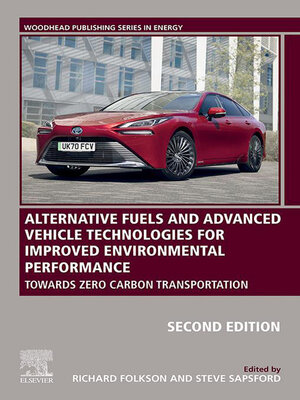Alternative Fuels and Advanced Vehicle Technologies for Improved Environmental Performance
ebook ∣ Towards Zero Carbon Transportation · Woodhead Publishing Series in Energy
By Richard Folkson

Sign up to save your library
With an OverDrive account, you can save your favorite libraries for at-a-glance information about availability. Find out more about OverDrive accounts.
Find this title in Libby, the library reading app by OverDrive.



Search for a digital library with this title
Title found at these libraries:
| Library Name | Distance |
|---|---|
| Loading... |
Alternative Fuels and Advanced Vehicle Technologies for Improved Environmental Performance: Towards Zero Carbon Transportation, Second Edition provides a comprehensive view of key developments in advanced fuels and vehicle technologies to improve the energy efficiency and environmental impact of the automotive sector. Sections consider the role of alternative fuels such as electricity, alcohol and hydrogen fuel cells, as well as advanced additives and oils in environmentally sustainable transport. Other topics explored include methods of revising engine and vehicle design to improve environmental performance and fuel economy and developments in electric and hybrid vehicle technologies.
This reference will provide professionals, engineers and researchers of alternative fuels with an understanding of the latest clean technologies which will help them to advance the field. Those working in environmental and mechanical engineering will benefit from the detailed analysis of the technologies covered, as will fuel suppliers and energy producers seeking to improve the efficiency, sustainability and accessibility of their work. - Provides a fully updated reference with significant technological advances and developments in the sector - Presents analyses on the latest advances in electronic systems for emissions control, autonomous systems, artificial intelligence and legislative requirements - Includes a strong focus on updated climate change predictions and consequences, helping the reader work towards ambitious 2050 climate change goals for the automotive industry







